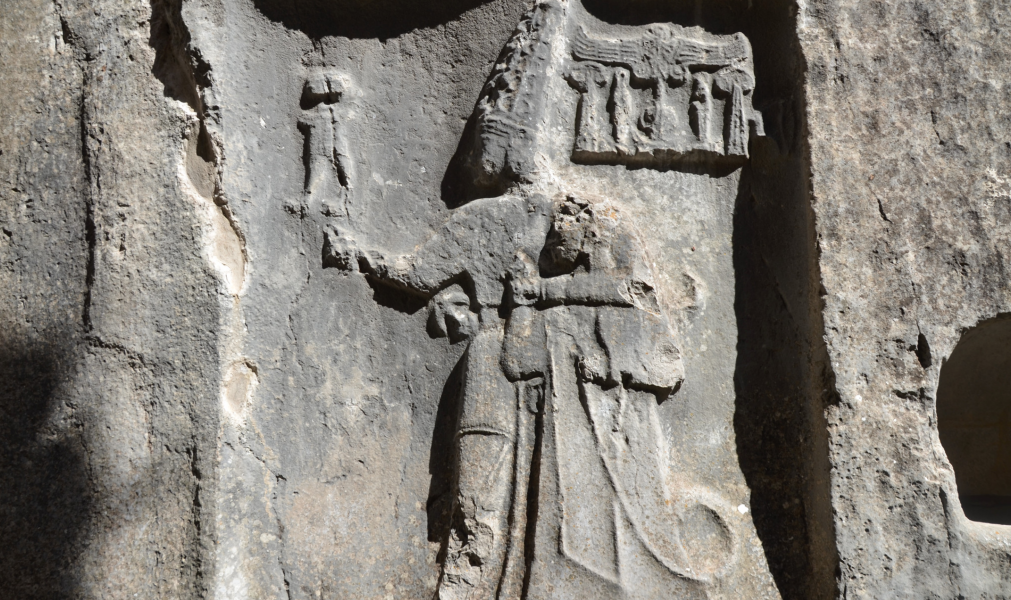I looked into the Bronze Age and found it eerily familiar.

Credit: Carole Raddato
When I was in college, I took a graduate-level seminar on the language of the Hittites, a Bronze Age people of Anatolia. I was interested in their highly archaic Indo-European argot, both the oldest recorded and the first to have broken into its own group from the rest of that great family, as Sanskrit and Greek and Armenian were the last. More importantly, it was also very funny to tell people I was taking Hittite. I did really think that I was going to be a great philologist or linguist in the 19th-century mold; yet this clearly has not come to pass, and instead I make my living by my wits. In the end, the part of me that thought it was funny won out.
Even so, I learned rather a lot about the Hittites and the Bronze Age writ large. (I also learned a decent amount of Hittite, now mostly forgotten.) The Hittites occupied the center of what is the modern Republic of Turkey, or, as the current Turkish government would have it, Türkiye. Their capital, Hattusa or Hattusha, was taken forcibly from an earlier people, the Hatti, whose non-Indo-European language was preserved in the place-names and some of the rituals of their successors.
The Hittites were peculiar among the Bronze Age peoples for their weak or absent public ideology. The Egypt of the Bronze Age was oppressive in its prescriptions and public images, to the degree that Egyptologists classify newly discovered inscriptions in a handful of rigid categories, the most delightful of which is “the royal smiting scene.” (It’s exactly what it sounds like.) The life of the Pharaoh was idealized, a type, a mold with little room for deviation; so was the life of a slave. Notably, Egyptian farming property was in large part inalienable even into Roman times. You cultivate the plot your father cultivated; your son will cultivate the plot you cultivated. Philip Glass’s unusual (and maybe not very good) opera Akhenaten is, for its other flaws, an admirable representation of the prevailing ideology of the Egyptian state, a nightmare of identical ancestors and the severe repression of the individual; completely absent is the public play and back-and-forth that characterizes politics as inherited from the Greeks.
Similarly, the Assyrian king-lists emphasize the continuity and almost identity of the Akkadian kings and their dynasties. In such states, geography becomes more important than history; things don’t change, so the forms of differentiation in human life are primarily spatial. (Jan Assman, the Egyptologist and anthropologist, refers to such ideological environments as “cold,” as opposed to the “hot” temporally driven ideological environments of Judaism or Christianity or progressive liberalism.) The king stands between heaven and earth in an unchanging world that sits, firm and motionless, on pillars of infinite and unchallengeable depth.
The Hittites, on the other hand, were almost purely pluralistic. Like the other Bronze Agers, their kings upon death “became gods,” and they had little sense of history; yet they also had little sense of particularity. Their kings were kings not because of some divine origin story but because they happened to be the ones in charge right now. The Hittites named themselves for whatever city they happened to be occupying, a sort of primitive birthright citizenship—“the men of Hattusa,” or “the men of Nesha” for an older settlement. (Contrast with the Slavs, “the men of glory”! Or the Bharatas, “the men who hold [the land]”!)
They assumed the rituals and stories of every nation they conquered; the first form of the Akkadian Gilgamesh “epic” to meet with modern scrutiny was the Hittite translation. Even the rituals of the people they ousted from their capital were preserved and continued. (“The priest speaks in Hattian,” a preserved set of ritual instructions notes before an inscrutable tumble of symbols.)
The Hittites were rather good at trade and prospered well. Some of the earliest evidence of the Hittite kingdom is the grumbling of Assyrian metal traders who felt they weren’t getting their money’s worth in their northern travels. They were able to amass sufficient resources to take on their peers of the time, the Assyrians and the Egyptians, and win as often as not on the field of battle. After establishing themselves, they maintained a palace economy—a centralized state doling out food and occasional goodies to powerless plebs.
Subscribe Today Get daily emails in your inbox Email Address:
But it was that central absence of identity or ideology that came back to bite them. Hattusa was not a naturally defensible site, and the Hittite kings made little investment in improving it; the dominant dynamic of Hittite history was kings making war at the peripheries and then rushing back into the interior to respond to rebellions against their sovereignty, both purely domestic and foreign-backed. If one thing is as good as another, if all rites are acceptable, if the only majesty of the king and his government is that he is the one in power at this moment, why not try to take over? Eventually this yawning void of ideology and failure of infrastructure combined with the invasion of “the Sea Peoples”—migrants of unclear origin who appear in every Mediterranean state’s records of the Late Bronze Age—and the Hittite Empire fell.
I dropped Hittite after the first semester to take on more newspaper work. Yet I wonder whether I would have been better prepared for the things to come in our own nation if I had spent longer studying this vague, self-unbelieving people.
Sourse: theamericanconservative.com